#fashion and textiles
Explore tagged Tumblr posts
Text
i just finished my favourite project yet, the iconic shirt Silva wears. As soon as i saw him on screen i HAD to have this shirt.

it isn’t an exact replica (ie. the pattern doesn’t match up in some places, the circle details are larger, etc) BUT ITS PRETTY CLOSE.
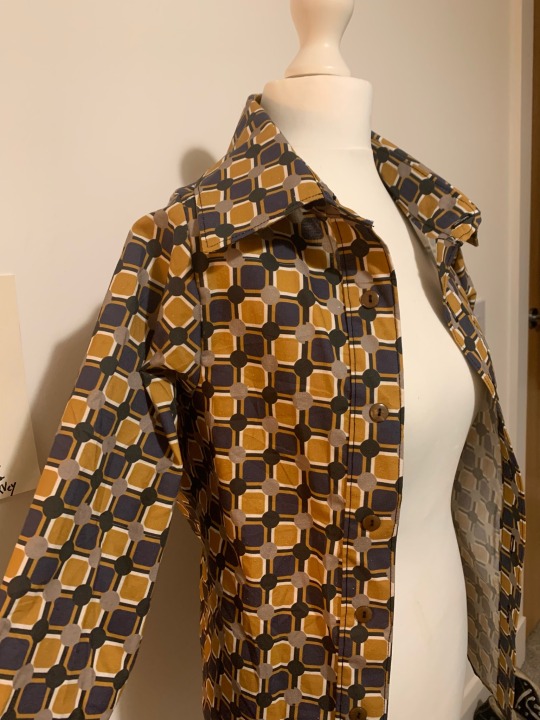

i drew out the pattern and had it printed onto 100% cotton fabric.
this is going to become a staple in my wardrobe.
#raoul silva#tiago rodriguez#skyfall#james bond#007#javier bardem#i am in love with it#fashion and textiles#i’m so proud
92 notes
·
View notes
Text
Oscar de la Renta: 'Crafted like a mosaic, discover the making-of the #odlrfall2024 stained glass gown — ushering in a a new House-signature embroidery technique.'

Constructed from hundreds of polyamide panes, hand-sewn together in an Art Nouveau style reminiscent of Tiffany glass. Ready-to-wear: £36,546.


#oscar de la renta#fashion#savoir faire#metiers d'art#video#process video#fall 2024#stained glass#couture embroidery#construction#atelier#2024#pattern#surface pattern#surface pattern design#pattern design#textile design#textiles#wisteria#flowers#floral#polyamide#plastic#art nouveau#tiffany glass#louis comfort tiffany#art history#design history
29K notes
·
View notes
Text

Vivienne Westwood
21K notes
·
View notes
Text






0 notes
Text
Historical context is of course very useful for important things like Politics and Science and everything, but will also open your eyes to things like, uh... the way the clothing/textile/crafting industries try to use the word "natural" as an excuse to sell shoddy and bad quality goods and make you think that's normal.
God knows there are worse things going on in the world, but it really pisses me off when I see companies advertising "Real Shell/Pearl buttons!" like that's supposed to be some upscale selling point, and the buttons in question are the thinnest, roughest, most crudely-made buttons in existence... 🙄😒 "But they're made from Natural Materials! You can't expect Natural Materials to look refined and consistent like synthetic ones!" They are lying to you. THEY ARE LYING TO YOU! And I know this because I've seen "real shell buttons" from 100 or even 50 years ago. And most of them are sturdy and smoothly polished, of a consistent thickness, and sometimes even finely carved. The buttons on nice men's dress shirts? Those are the cheap, plastic IMITATIONS of what people expected actual mother-of-pearl buttons to look like! "Natural" isn't an excuse! Your product is cheap and badly and lazily made! And I'm so sick of this, because I see it EVERYWHERE. "Linen-look" has become shorthand for "coarsely woven fabric with visible slubs" and that drives me CRAZY because do you KNOW what kinds of linen I have seen??? Antique linen so light and fine and smooth you can't even SEE the weave unless you magnify it!!! A fragment of a linen damask tablecloth so smooth and glossy, it looks like SILK? 😭 (On that note, "dupioni silk" is so roughly woven that it would have been considered hardly fit to sell a century ago) "This fabric is woven of Natural Materials, so imperfections will be inevitable!" 🙃 No! 😀 You just made it cheaply and sloppily, and that was your choice! 😊
10K notes
·
View notes
Text
I finally made my first yarn wig after 10+ years of crocheting my cosplays...
#artist#crochet#crocheting#fiber art#yarn#yarn crafts#cosplay#crochet cosplay#fiber artist#fiber crafts#my crochet#my cosplay#my art#wig#wig making#costume construction#cosplayer#costume#crochet tumblr#crochet wig#marie antoinette#rococo#historical fashion#fibre artist#fibre arts#textile art#textiles#costume design#crochet design#designer
24K notes
·
View notes
Text

🪡🎀✨🪩
0 notes
Text
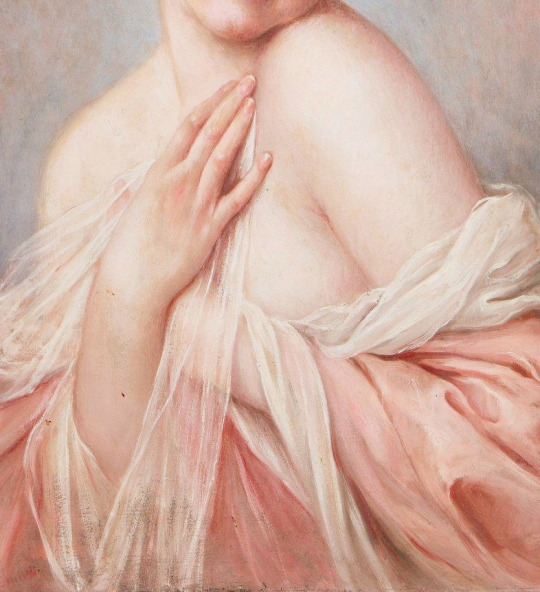
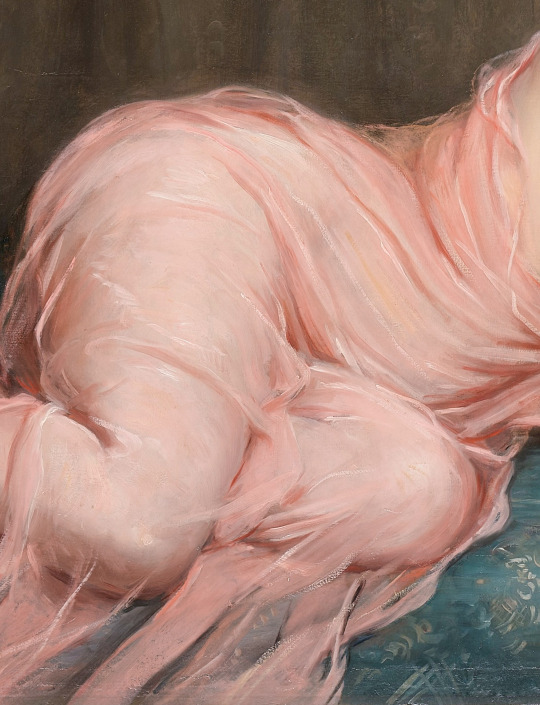
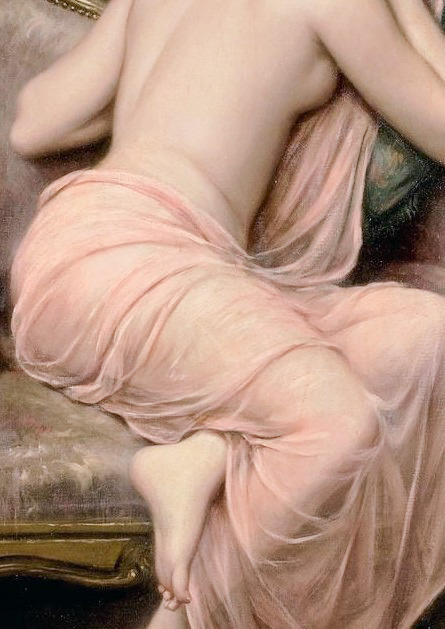
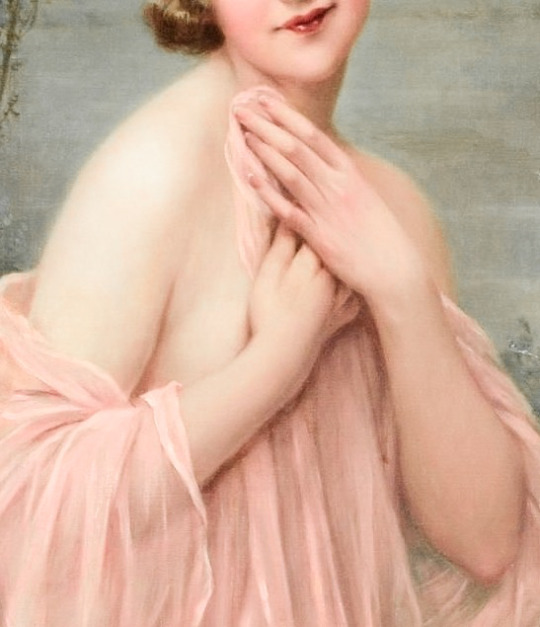
François Martin-Kavel & pink fabrics
French, 1861-1931
#art#painting#classical art#women in art#art detail#fine arts#art history#french art#François Martin-Kavel#pink aesthetic#pink#19th century art#19th century#fashion history#historical fashion#textiles#art lover#historical art#painting detail#light academia
18K notes
·
View notes
Text


My final line up. I made a collage of them on Pinterest to give a slightly cleaner presentation.
I feel they’re both true to my textiles and the my mood and colour boards based research and work I did based on Do Ho Suh.
0 notes
Text


beaded pink sardine earrings ✨ handmade with vintage and salvaged beads + sequins! these have sold but i have a similar pin and patch in stock currently ❤️
etsy
#mine#my art#art#textile art#artists on tumblr#fiber art#beadwork#beading#earrings#jewelry#fashion#slow fashion#fish#fish art#embroidery#whimsigoth#sardines#pink#pink aesthetic#vintage#etsy#hand embroidery#mermaid aesthetic#sea siren
4K notes
·
View notes
Text
One side effect of my research for this novel being steeped heavily in textile history is my swelling disgust with modern fabrics.
Firstly they're so thin? Like most things you see in Old Navy or even department stores might as well be tissue paper?? Even some branded sports t-shirts I've bought in recent years (that are supposed to be 'official apparel' and allegedly decent quality) are definitely not going to hold up more than a year or two without getting little holes from wear.
This side of even two hundred years ago fabrics were made to be used for YEARS, and that's with wearing them way more often because you only owned like three sets of clothes. They were thick and well made and most importantly made to LAST. And they were gorgeous?? Some of the weaves were so fine and the drape so buttery we still don't entirely know how these people managed to make them BY HAND. Not to mention intricate patterning and details that turned even some simple garments into freaking ART.
I know this is not news, the fast fashion phenomenon is well documented. Reading so much about the amazing fabrics we used to create and how we cherished and valued them, though, is making it hard not to mourn what we lost to mass production and capitalism. Not just the quality of the clothing and fabrics themselves, but the generations of knowledge and techniques that are just gone. It makes me what to cry.
I need to get a sewing machine.
#textile history#fast fashion#textiles#weaving history#novel research#mass production#late stage capitalism#capitalist hell#fiber arts
9K notes
·
View notes
Text
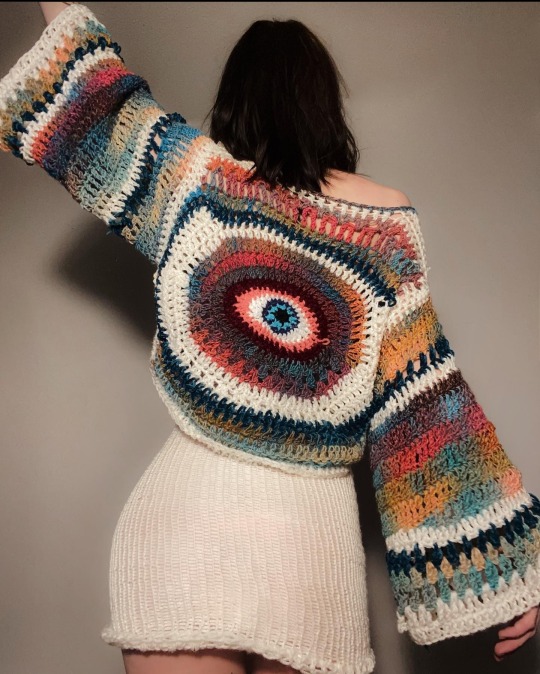

Crochet Eye Sweater by CarolineMoorenc
#CarolineMoorenc#eyes#crocheting#crochet#fashion#handmade#textiles#y2knots#art#curators on tumblr#curators
26K notes
·
View notes
Text



Galaxy Bride at Robert Wun Couture FW24
#robert wun#fw24#couture#runway#fashion#galaxy#bride#embellishment#bead embroidery#pattern#surface pattern#surface pattern design#pattern design#textile design#textiles#video#crystals#galaxy print#printed textiles#print
32K notes
·
View notes
Text
Child's Sock from Egypt, c.250-350 CE: this colorful sock is nearly 1,700 years old

This sock was discovered during excavations in the ancient city of Oxyrhynchus. It was likely created for a child during the late Roman period, c.250-350 CE.
Similar-looking socks from late antiquity and the early Byzantine period have also been found at several other sites throughout Egypt; these socks often have colorful, striped patterns with divided toes, and they were crafted out of wool using a technique known as nålbinding.

Above: a similar child's sock from Antinoöpolis, in Egypt, c.250-350 CE
The sock depicted above was created during the same period, and it was found in a midden heap (an ancient rubbish pit) in the city of Antinoöpolis. A multispectral imaging analysis of this sock yielded some interesting results back in 2018, as this article explains:
... analysis revealed that the sock contained seven hues of wool yarn woven together in a meticulous, stripy pattern. Just three natural, plant-based dyes—madder roots for red, woad leaves for blue and weld flowers for yellow—were used to create the different color combinations featured on the sock, according to Joanne Dyer, lead author of the study.
In the paper, she and her co-authors explain that the imaging technique also revealed how the colors were mixed to create hues of green, purple and orange: In some cases, fibers of different colors were spun together; in others, individual yarns went through multiple dye baths.
Such intricacy is pretty impressive, considering that the ancient sock is both “tiny” and “fragile."
Given its size and orientation, the researchers believe it may have been worn on a child’s left foot.

Above: child's sock from Al Fayyum, Egypt, c.300-500 CE
The ancient Egyptians employed a single-needle looping technique, often referred to as nålbindning, to create their socks. Notably, the approach could be used to separate the big toe and four other toes in the sock—which just may have given life to the ever-controversial socks-and-sandals trend.
Sources & More Info:
Manchester Museum: Child's Sock from Oxyrhynchus
British Museum: Sock from Antinoupolis
Royal Ontario Museum: Sock from Al Fayyum
Smithsonian Magazine: 1,700-Year-Old Sock Spins Yarn About Ancient Egyptian Fashion
The Guardian: Imaging Tool Unravels Secrets of Child's Sock from Ancient Egypt
PLOS ONE Journal: A Multispectral Imaging Approach Integrated into the Study of Late Antique Textiles from Egypt
National Museums Scotland: The Lost Sock
#archaeology#artifact#history#anthropology#child's sock#ancient textiles#ancient egypt#roman egypt#fabric arts#knitting#fashion#naalebinding#art#classical antiquity#children in archaeology#natural dyes#wool#yarn#ancient clothing#children#roman#sewing#egyptology#cute little stripy socks
2K notes
·
View notes
Photo
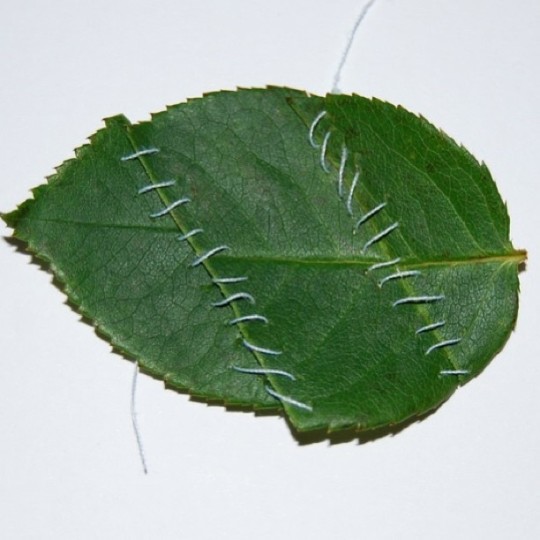
Stitching Stories in the Autumn Canopy
5K notes
·
View notes
Text
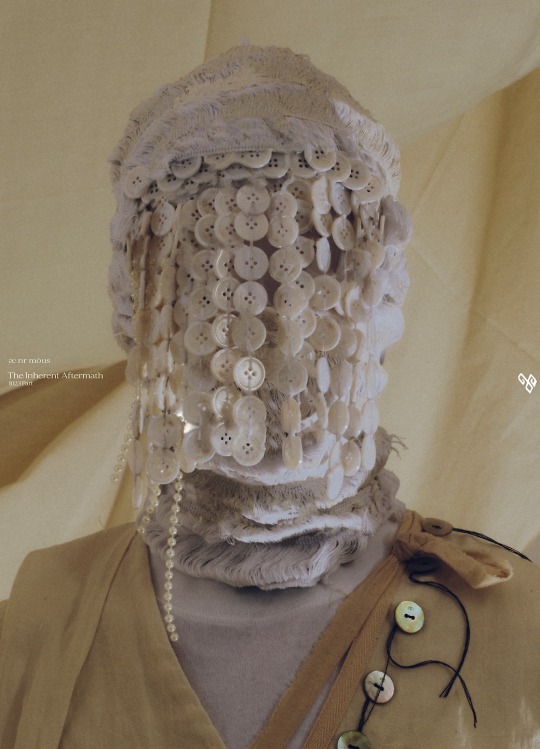
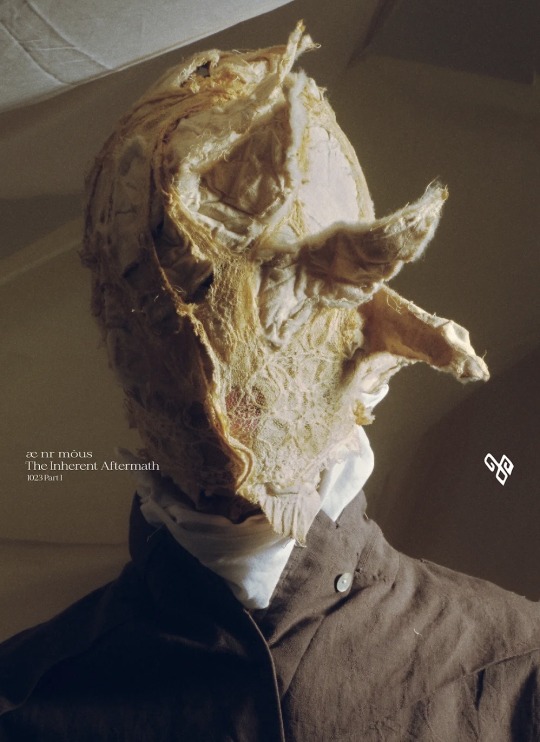
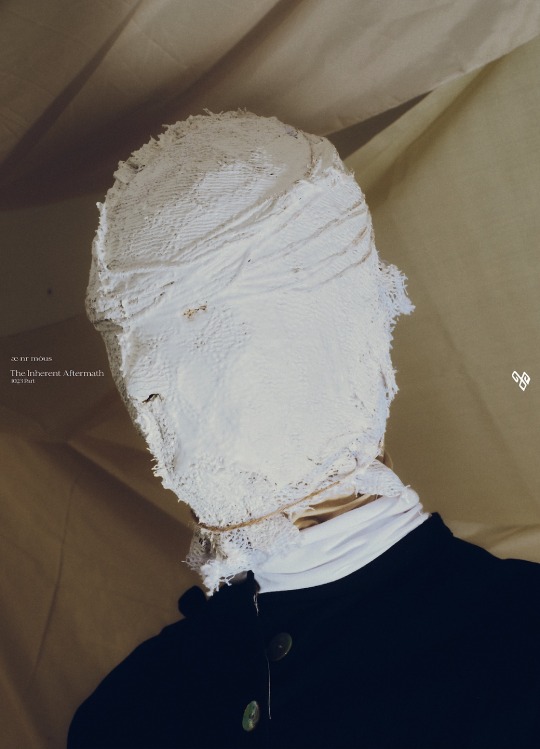

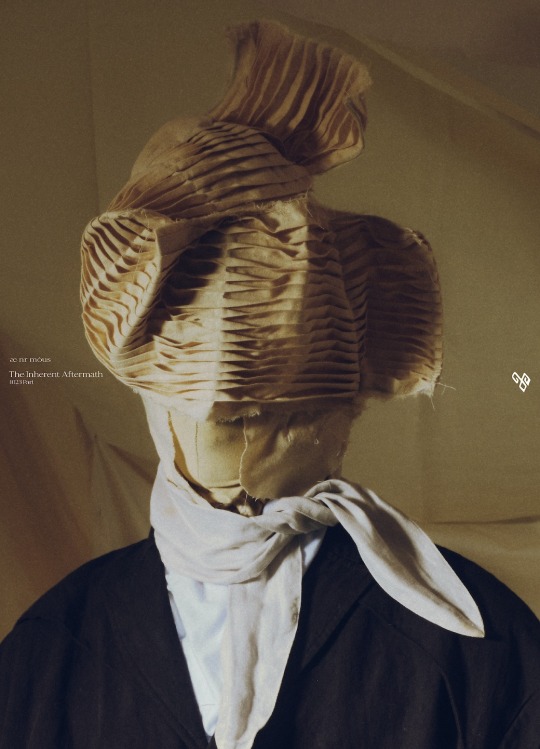

æ nr mòus: The Inherent Aftermath Part 1 (2023)
8K notes
·
View notes